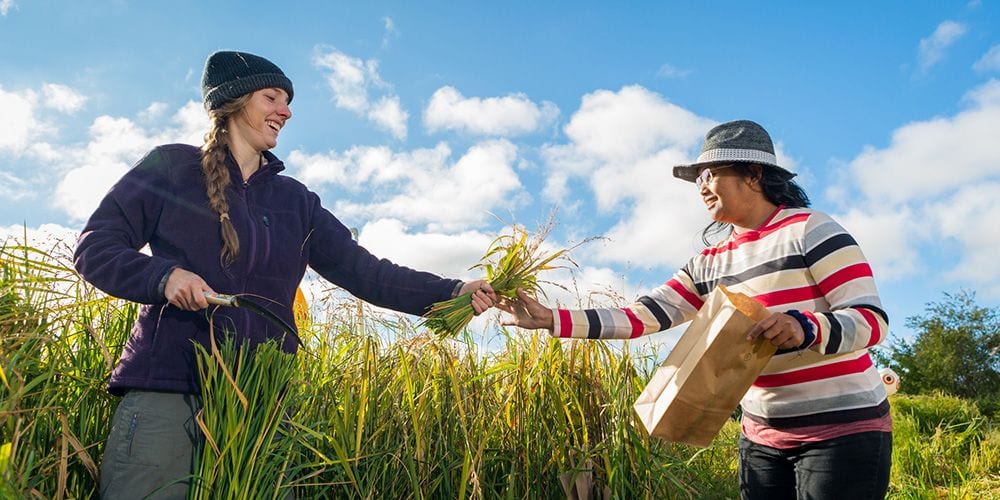Signature Research Areas
The University of Arkansas has identified three signature research areas that distinguish the university from other institutions and will inspire collaborative research with partners across the campus, state and nation. The signature areas – Advancing the Data Revolution, Improving Human Health and Community Vibrancy and Innovating for a Resilient and Sustainable Future – encompass a broad range of research topics across the U of A campus. They are designed to facilitate interdisciplinary research across campus, in order to advance technology, build a better world and improve lives in Arkansas and beyond.
Advancing the Data Revolution

Researchers in many disciplines use data to learn about the world and address challenges. At the U of A, researchers are using data to track terrorism threats, diagnose and treat diseases and improve supply chain logistics. Faculty and students in the fields of business, science, humanities, engineering, agriculture and education are tackling Big Data using data analytics, data science and data visualization. The university’s High Performance Computing Center provides a powerful resource for making sense of the wealth of information around us.
Improving Human Health and Community Vibrancy

U of A faculty and students are studying factors that contribute to healthy people and vibrant communities. Research projects in this area cover all aspects of life, from improving the detection of breast cancer to addressing the issue of homelessness to increasing awareness of diversity in the music world. Researchers in medicine, human performance and nutrition address physical health, while other researchers focus on the health of our communities by looking at social justice issues and cultural systems. And research in education, combined with programs in art and creativity, improve the quality of life for everyone.
Innovating a Resilient and Sustainable Future

U of A researchers study ways to make our world both sustainable and resilient, using technology that supports the human and natural worlds and helps us recover from threats and disasters. In many different departments, faculty and students are developing resilient and sustainable food systems, materials and energy infrastructure. They are finding ways to enhance our communities, supply chains, transportation systems and environments. Researchers in these areas are investigating improved rice-growing practices, creating new technology for the electric power grid and increasing the resilience of our waterways to improve the future for everyone.



